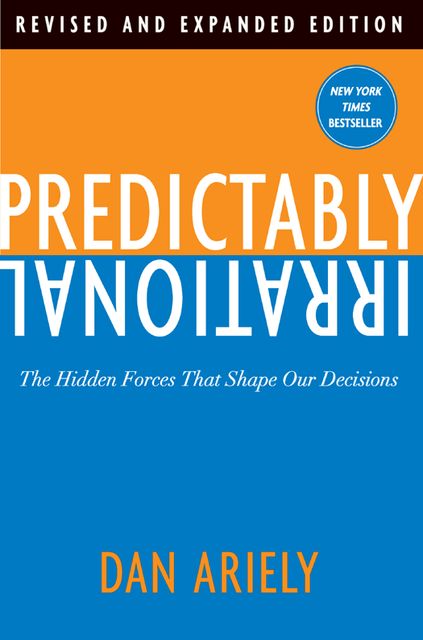Predictably Irrational, Revised and Expanded Edition
Ця книжка зараз недоступна
381 паперова сторінка
- Рік виходу видання
- 2009
Враження
- Myeong Shin Pakділиться враженням8 років тому👍Раджу🎯Корисна
Irrational stories about real real life things. Pretty interested
- Soliloquios Literariosділиться враженням6 років тому👍Раджу🔮Мудра💡Пізнавальна🎯Корисна💞Романтична🚀Неможливо відірватися😄Весела
Цитати
- Youцитує8 років томуSigmund Freud explained it this way. He said that as we grow up in society, we internalize the social virtues. This internalization leads to the development of the superego. In general, the superego is pleased when we comply with society’s ethics, and unhappy when we don’t. This is why we stop our car at four AM when we see a red light, even if we know that no one is around; and it is why we get a warm feeling when we return a lost wallet to its owner, even if our identity is never revealed. Such acts stimulate the reward centers of our brain—the nucleus accumbens and the caudate nucleus—and make us content.
- Eugene Matveyevцитує5 років томуIt seems then that instead of consumers’ willingness to pay influencing market prices, the causality is somewhat reversed and it is market prices themselves that influence consumers’ willingness to pay. What this means is that demand is not, in fact, a completely separate force from supply.
- Youцитує8 років томуBut the second, more important moral—one that we are just beginning to understand—is that trust, once eroded, is very hard to restore.
fb2epub
Перетягніть файли сюди,
не більш ніж 5 за один раз


